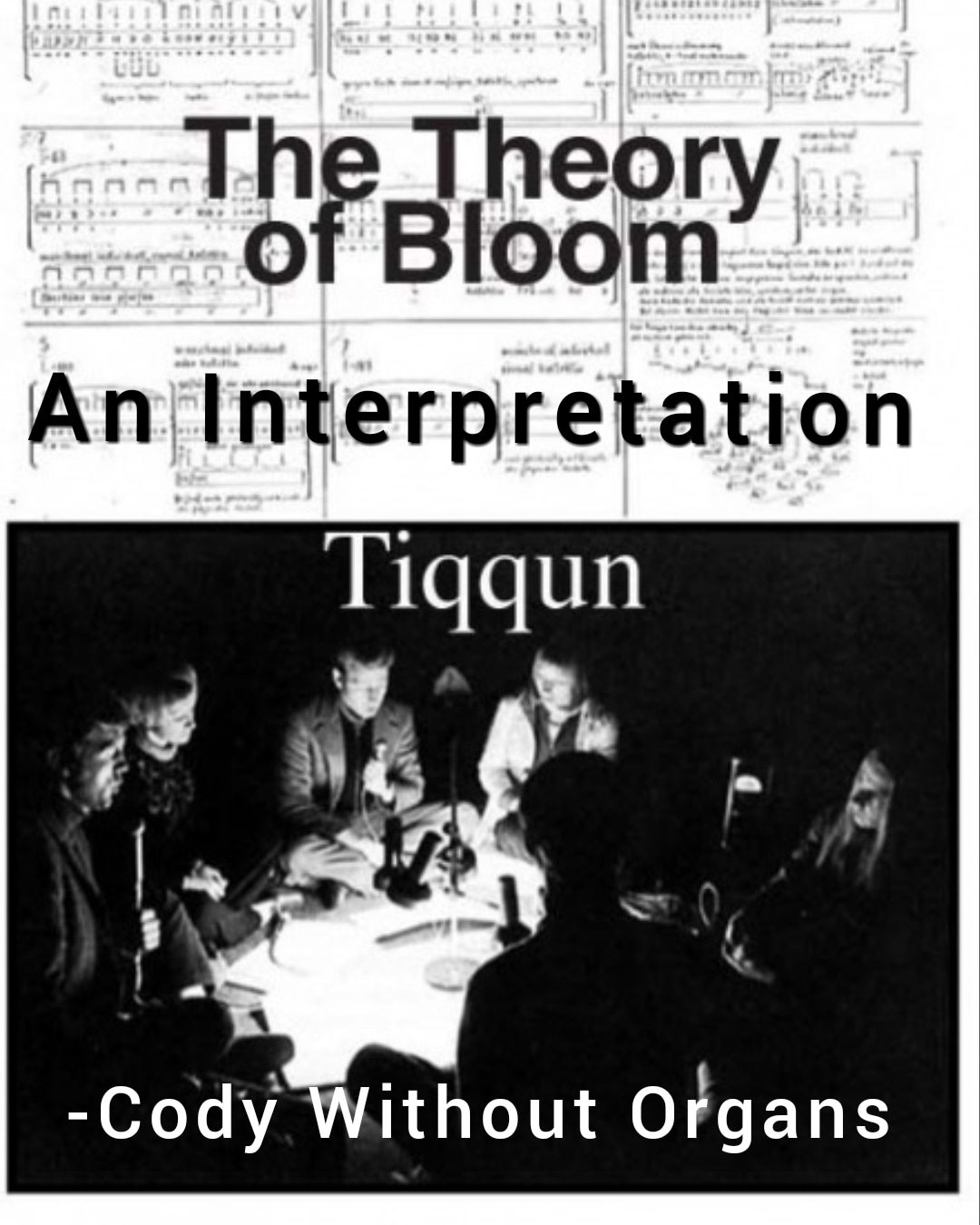“Bloom must die! Kill Bloom!”
“We may die. And this is what Hardt and Negri warn us must happen. We must destroy ‘ourselves’:“
In the definitions (or one of the definitions at least) of Bloom. In the active finding out of Bloom; who he is, what it does – is in the elimination of the/our reification of Objective and Subjective’ by means of ‘false dichotomy’.
Bloom is neither objective nor subject.
It’s instead a kind of ‘grounding’ or ‘third term’ that takes place in the ’empty space’ of negation.
An empty space is better recognised as ‘virtual’.
As the space of ‘pure difference’ between deterritorialization and reterritorialization.
A ‘pregnant emptiness’.
“Emptiness is the pregnant void out of which all creation springs. But many of us fear emptiness.”
Attributed to multiple authors; Wayne Muller, Jack Kornfield…
Out of the destruction of one’s abstract concept of Subjectivity/Objectivity comes a platform to think of a third term, an alternative approach, an aufhebung or sublation – described by Hegel. This negation of the negation, which some of us may recognise as affirmation.
Bloom desires bloom, Bloom is born out of Bloom, he brings it upon himself. Because it is him, it’s a whole feeling, a whole consciousness, a whole subjectivity, a whole being. Bloom produces and represents him/itself. It’s also a kind of being-for-itself that ‘wills-itself’, as Nietzsche’s will to power seems to be interpreted by Deleuze as such, a ‘Willing which Wills itself’.
Understanding the figure of Bloom doesn’t just require renouncing the classical idea of the subject, which is no big deal; it also requires abandoning the modern concept of objectivity.
The term “Bloom” doesn’t in some exotic way fill the need for a word in the current lexicon to designate a new human type that has recently appeared on the surface of the planet that we should defend ourselves from. “Bloom,” rather, is the name of a certain Stimmung [mood], a fundamental tonality of being.
This Stimmung doesn’t come from the subject, like a kind of fog clouding perception, or from the object, as a liquefied version of the Spirit of the World; rather it is the basis upon which the subject and the object, the self and the world, could exist as such in the classical age, i.e., as clearly distinct from one another.
Bloom Theory, Tiqqun
The becoming of being. The flow of desire. From BwO to desiring-machine.
